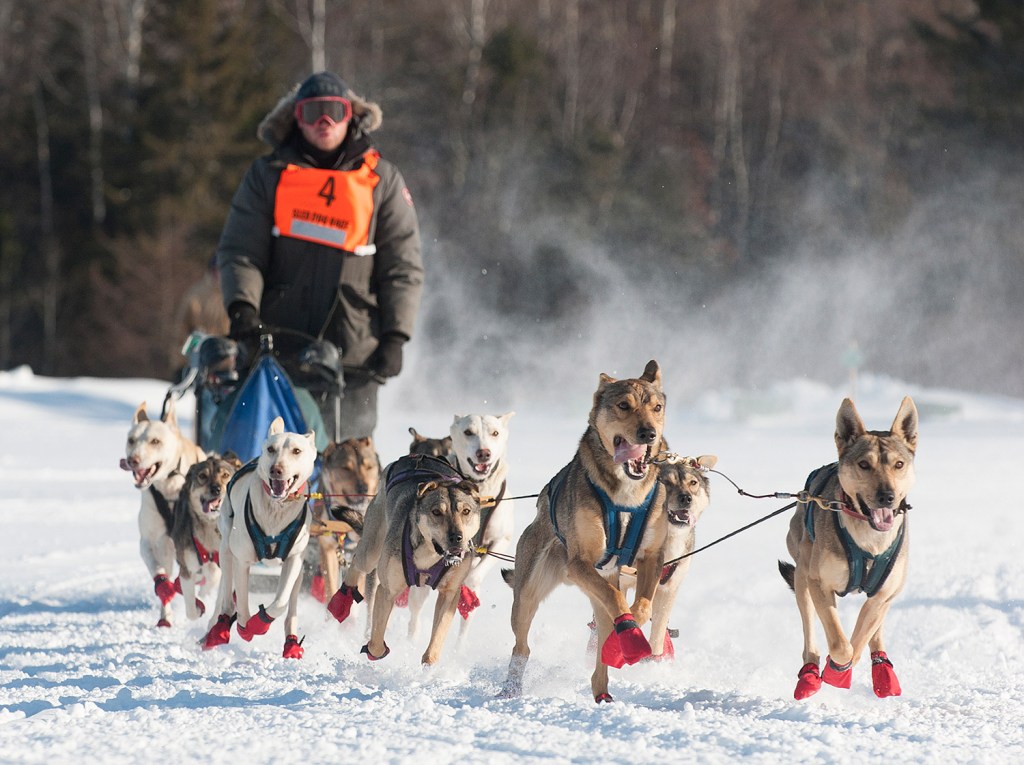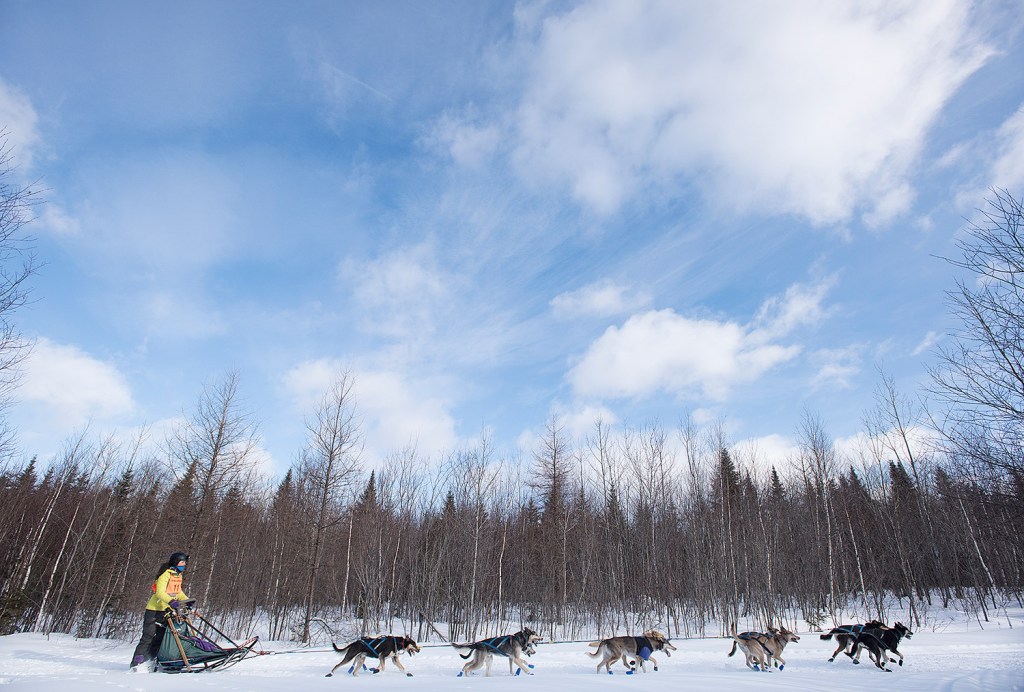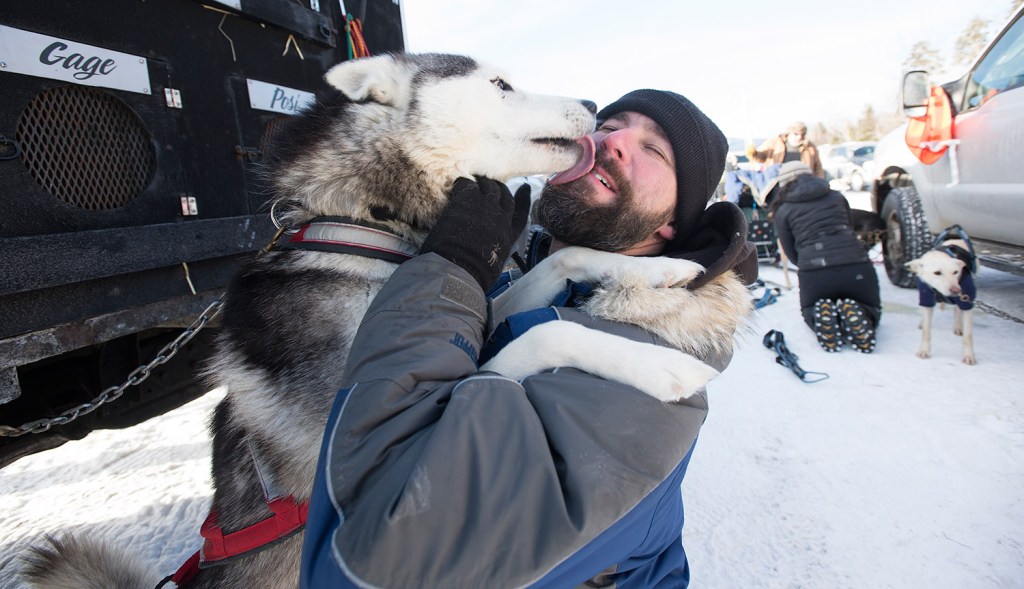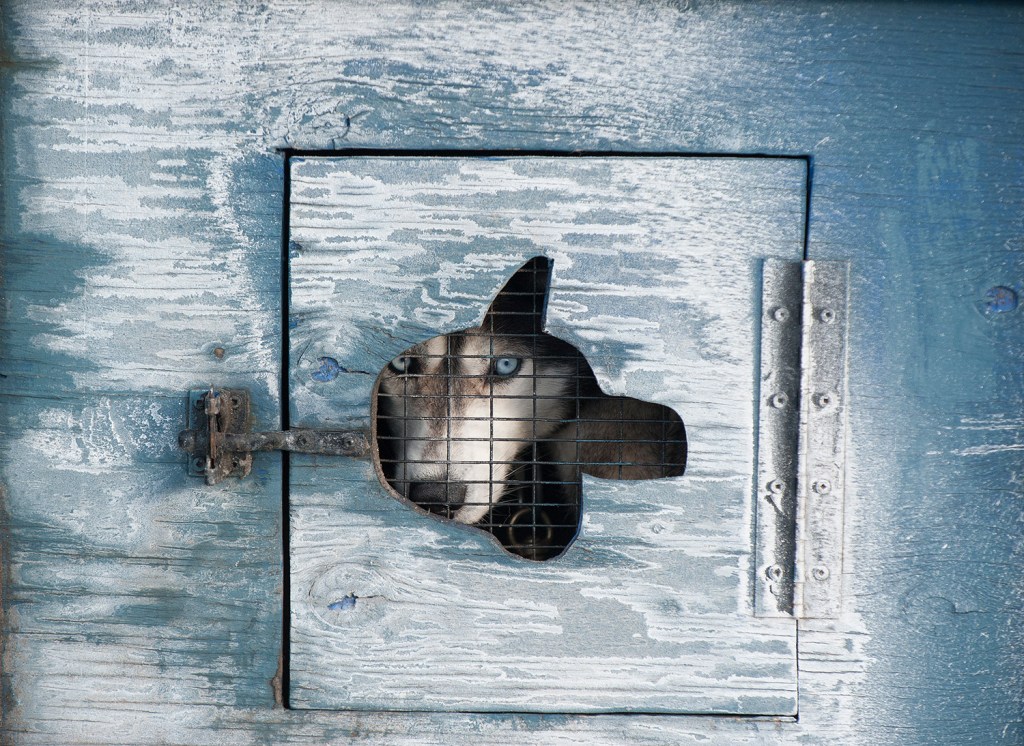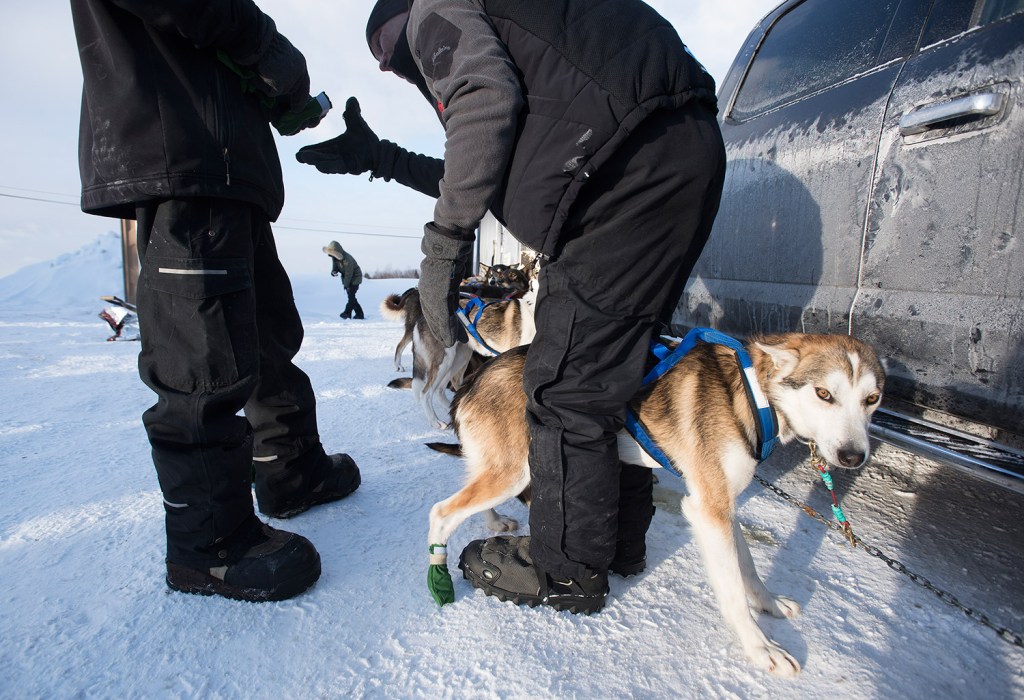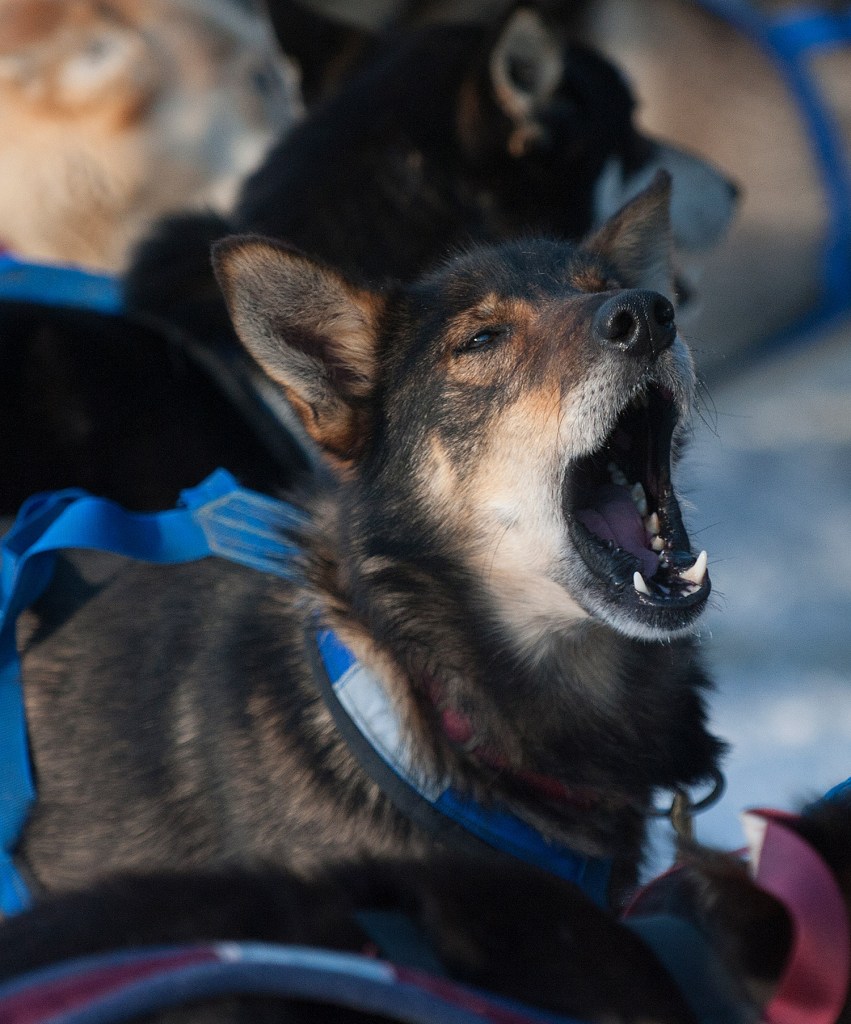GREENVILLE — Listening to mushers at the Wilderness Sled Dog Race talk about their lead dogs, it sounded a little like they were talking politics.
Some mushers said the best leaders have a strong desire to excel and propel their team to great things.
Others say true leaders are better at listening, collaborating and adjusting for the good of the team.
Still others claim the very best leaders are simply unflappable no matter what a race throws at them. These leaders, mushers claim, are incredibly intelligent, intuitive and remarkably calm.
These dogs sound like the kind of leaders everyone could get behind. And those who admire them did – quite literally – last weekend at the 10th running of the Greenville race.
“She doesn’t get upset, even if I disagree with her,” said Becki Tucker of Dorchester, New Hampshire, of her lead dog. “It doesn’t change her attitude or her drive.”
Tucker, a musher of 17 years, believes you can tell a good lead dog by its body language. Her lead dog, Superstar, a 5-year-old female Siberian husky, stands tall and proud.
Tucker thinks it’s the breed, that “Sibs” are independent and naturally confident.
Paula Portalatin of Milo said she and her husband, Rico, have a few good leaders in their kennel, but it takes a special dog to be a remarkable sled-dog leader.
They use Alaskan huskies because they’re physically strong, she said. But Portalatin swears their two best leaders – Wane and Kelso – have a special physical strength that comes from an uncommon drive.
“They really dig in going up hills,” Paula Portalatin said. “You definitely need a good leader because they direct the rest of the team.”
The two Wilderness races – one 30 miles long and the other 70 – attract teams from Canada and New England. This year, seven teams ran the shorter race and 12 ran the longer.
Temperatures before the 70-mile race hovered near zero – perfect conditions for a race. The snow was firm, allowing the sleds to run fast.
Still, lead dogs need to be especially focused to keep the sled on course and guide the team while listening for the commands to turn left or right. And if something goes amiss they need the presence of mind to listen for the driver to correct a wrong turn.
Amelie Aubut of Pont-Rouge, Quebec, a musher of 40 years who took third in the 70-mile race, said her 7-year-old female Alaskan husky, Nome, is by far her top lead dog because of Nome’s laser focus.
“She has been a leader since she was a yearling. She was born to run,” Aubut said.
Yann Shaw of Fermont, Quebec, was running his first sled dog race. He said what makes his 4-year-old male Alaskan, Heather, his best leader is the dog’s willingness to work hard.
“I prefer his character,” Shaw said. “He is soft, easy. He has a strong work ethic and wants to work harder for you.”
But in the frozen parking lot of the Leisure Life Resort at 8:45 a.m., one dog stood out. With a dozen sleds hooked up to 12 dogs each and a cacophony of barking coming from every team, none were as loud as Martin Massicotte’s lead dog, Amick.
Massicotte, of Saint-Tite, Quebec, is a seven-time winner of the Fort Kent Can-Am 250. He’s raced the 1,000-mile Yukon Quest and hopes to run the Iditarod in 2019. Amick, his 3-year-old female Alaskan husky, has been his lead dog since her first race.
Marie-Josee Dulong, Massicotte’s wife and a dog handler, pulled out a photo of Amick on her phone to show that in a race, she looks different from other dogs. Amick’s head is lowered, she’s digging into the snow, and she looks intent, like a wolf hunting.
As the other sleds moved into position before the start of the race, Amick could be heard howling and baying as she turned and looked over her shoulder at her team.
It looked like the dog was in terrible agony. But Dulong smiled.
Amick was urging the team on before the race, she said, telling them: “Let’s run fast!”
“Her attitude makes her better. She always wants to go,” Dulong said. “She drives the other dogs on the team. Her attitude is like, ‘Let’s go!’ ”
Massicotte finished second in the 70-mile race in a time of 5 hours, 27 minutes, 24 seconds, behind Andre Longchamps of Pont-Rouge, who won in a course-record 5:13:24. But the runner-up finish wasn’t from a lack of hard work by Amick.
“She transmits energy to the other dogs,” Dulong said. “I think it’s obvious.”
Deirdre Fleming can be reached at 791-6452 or at:
dfleming@pressherald.com
Twitter: FlemingPph
Send questions/comments to the editors.


